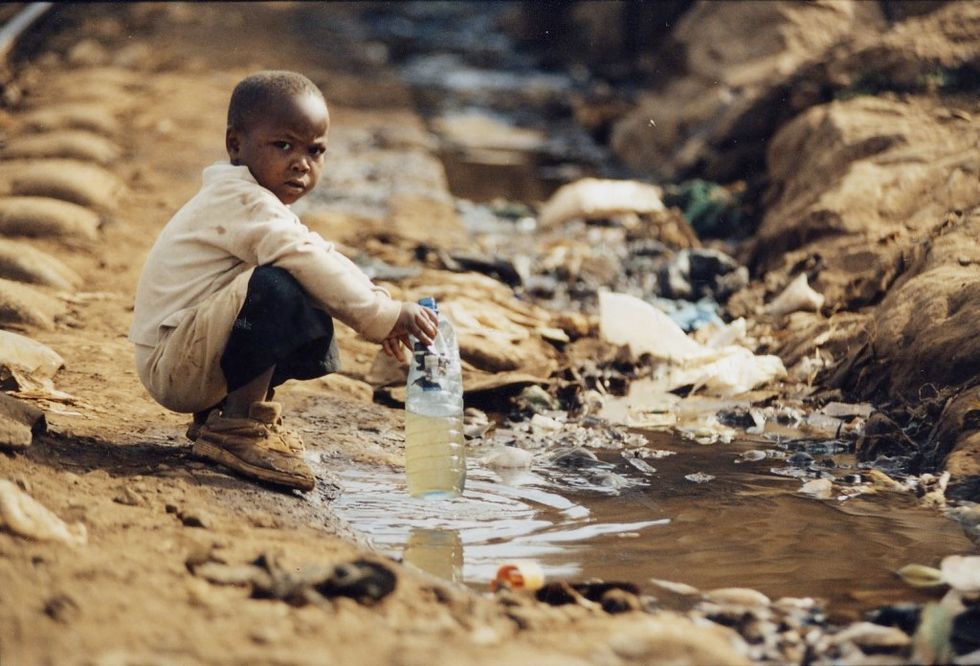Water is a necessity that most living beings on Earth cannot live without. Despite being a necessity, it is not considered a right; many places such as Afghanistan, Ethiopia and India are just a few instances of places deemed locations that lack clean, sanitary drinking water.
Despite these three countries exemplifying an extreme lack of drinking water, this trend of inadequate amounts of drinking water is experienced by more than one billion people across the world. I do not know about you, but this is an astonishing fact that not many people take into consideration.
To some this might just be an issue that will fix itself; most likely a viewpoint conceived due to a long time spent with the luxury- that’s right, I said luxury- of having access to clean drinking water. Although you might take it for granted it is important to acknowledge the fact that a lot of do not. As a person that had previously taken water for granted, I didn't recognize the potential struggles that one in ten people across the world were facing in their everyday lives.
For the struggles that you might not know about however are not to be taken lightly. As a matter of fact, contaminated drinking water can cause many types of diarrheal diseases: Cholera, Guinea worm disease, Typhoid and Dysentery. Just so my message is not shrugged off, let me instance you the life of a child that has contracted a Guinea worm. This disease is caused by a parasite (called the guinea worm) in unsafe drinking water that enters the person’s body. Someone with the parasite will experience extreme pain and discomfort and even has the possibility to incapacitate the host. But just to widen your view on the issue at hand: diseases from dirty water kill more people every year than all forms of violence, even in war.
Meanwhile, disease is not the only problem that comes from a lack of clean water; The other aspect of the issue is the ‘lack of part’. In Africa alone, women spend 40 billion hours in a year walking to retrieve water. And sometimes the water is not even clean! If women in Africa had a reliable source of clean water like we have in America, communities would be able to fight poverty: through growing more food, earning more incomes per family and further opportunities such as more people having a chance at an education.
So how do we fix this crisis? Working with and in communities, we can implement sustainable solutions that work for the community. Tackling this humanitarian problem will take both innovation and investment. The modern day has produced a slew of innovations that can help undermine this issue and bring content in communities. Just a few of the innovations come in the form of devices and tools such as tiny UV water purifiers, fog harvesters and low-drain water chips. The investment portion of the solution comes in two forms: donating to the cause or raising money in the form of a fundraiser.
Not having clean water is a crisis that has been affecting people of all races, genders and ages for far too long. And for far too long, we (those who have an abundance of water) have done one of the worst things possible: nothing. Doing nothing is one of the most dangerous things when considering that access to clean water will not only provide people all over the world with economic growth but also a newly found hope in humanity and life.





 StableDiffusion
StableDiffusion StableDiffusion
StableDiffusion StableDiffusion
StableDiffusion Photo by
Photo by  Photo by
Photo by  Photo by
Photo by 
 Photo by
Photo by  Photo by
Photo by  Photo by
Photo by  Photo by
Photo by  Photo by
Photo by 










